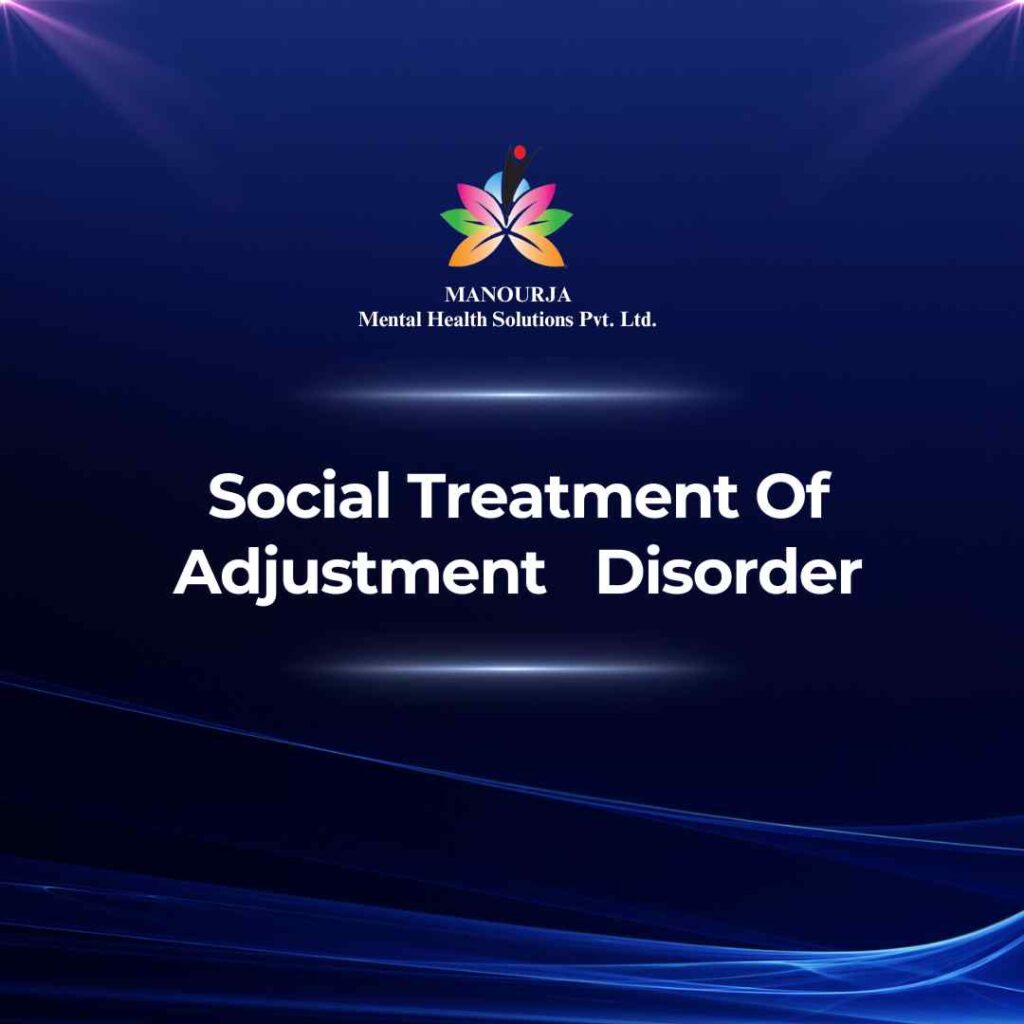Social Treatment of Adjustment Disorder

Social treatment for adjustment disorder involves therapeutic strategies and interventions that address the social aspects of the disorder, aiming to improve interpersonal relationships, enhance social skills, and build a supportive network. These treatments are vital because social factors often play a crucial role in the onset and maintenance of adjustment disorders, and improving social functioning can significantly aid recovery. Here are key components of social treatment for adjustment disorder:
- Interpersonal Therapy (IPT): IPT is a common and effective treatment for adjustment disorder that focuses on the interpersonal relationships of the patient. It helps individuals understand and improve how they relate to others, addressing issues such as role transitions (e.g., becoming a parent, retiring), grief, interpersonal disputes, and difficulties with social adjustments. The goal is to enhance communication skills and increase social support, which can alleviate symptoms of the disorder.
- Group Therapy: Participating in group therapy provides opportunities to connect with others facing similar challenges. It helps reduce feelings of isolation, offers a platform for sharing experiences, and allows individuals to receive and offer support. Group therapy can also help individuals develop new social skills in a safe and structured environment, which can be especially beneficial for those whose social circles have diminished or changed due to their condition.
- Family Therapy: Family dynamics can significantly affect and be affected by adjustment disorder. Family therapy involves treating the family as a whole, improving communication within the family, and addressing any family-related issues that may contribute to the disorder. This form of therapy helps family members understand the condition and learn how to better support the affected individual while also managing their own stress.
- Social Skills Training: This involves teaching specific skills needed to interact more effectively with others and build healthy relationships. Training might focus on assertiveness, conflict resolution, or expressing needs and emotions in appropriate ways. Enhancing these skills can help individuals feel more confident and competent in social situations, which is crucial for those whose disorder has led to withdrawal or conflict.
- Community Engagement Activities: Encouraging participation in community activities or volunteer work can help individuals with adjustment disorder feel more connected to their community. Engaging in social events, clubs, or other group activities can provide a sense of purpose and belonging, which is essential for mental health recovery.
- Building Social Support Networks: Therapy can also focus on helping individuals expand or strengthen their social networks. This may involve exploring new relationships or improving existing ones, and learning how to utilize social support effectively. A robust social support network can provide emotional support, practical help, and a buffer against stress.
These social treatments can be critical for individuals dealing with adjustment disorder, as they directly address the social triggers and consequences of the disorder. By improving interpersonal relationships and social functioning, these therapies can significantly enhance the overall well-being and resilience of individuals affected by adjustment disorder.
At MANOURJA, we believe in the transformative power of counseling. Our experienced therapists offer a safe and supportive space where you can explore your thoughts, emotions, and challenges. Through personalized counselling sessions, we’ll work together to develop coping strategies, build resilience, and achieve lasting positive change. Discover the path to a healthier, happier you with MANOURJA counselling services.
MANOURJA Rehabilitation Services
At MANOURJA, we’re dedicated to helping you in rebuild your life, after difficult times. Our rehabilitation services focus on understanding what you need to move forward, whether you’re recovering from addiction, trauma, or any psychological – social challenges. We create personalized plans, that are all about helping you, regain your strength and find hope again. With a caring team by your side, you’ll have the support to make real progress and take steps toward a brighter, healthier future.
